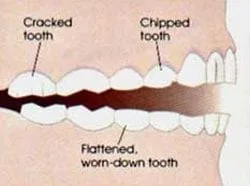Getting a good nights sleep is very important to an individuals overall health and is essential to their abilities to function in a normal way. Sleep complaints are very common among the general population and are usually accompanied by significant medical, psychological and social disturbances.
Obstructive sleep apnea or OSA is a serious and potentially life-threatening condition. It affects approximately 2 % of women and 4% of men. Higher percentages are present in the elderly. OSA is manifested by breathing cessation during sleep, loud snoring, difficulty maintaining sleep, fatigue, daytime sleepiness, mood effects and impairment of daytime activities, headaches and muscle pain. A person with OSA may stop breathing for ten seconds or longer-dozens, even hundreds of times each night. Everytime breathing stops during sleep, blood pressure rises and over time may stay elevated after breathing restarts. It has been associated with the development of cardiovascular disease, hypertension, congestive heart failure and stroke.
For someone who is suffering from OSA breathing can be laboured and noisy. A listener will hear the snoring broken by pauses as breathing is periodically stopped. A listener also hears deep gasping as breathing resumes. With each gasp, the sleeper awakens, but so briefly and incompletely that he does not remember doing so in the morning.
Upper Airway Resistance Syndrome (UARS) or snoring is the most common sleep related breathing disturbance. It is manifested by loud breathing which disrupts your sleep cycle. Often causing repeated partial awakenings during sleep with resulting daytime fatigue for both you and your sleep partner.
Treatment for OSA and UARS can be provided by a dentist, such as Dr. Walz, who is trained in the field of dental sleep medicine. Oral appliances are constructed to improve airway space and prevent airway collapse. The oral appliance is worn inside the mouth while sleeping and has a 90% compliance rate. Patients generally prefer oral appliance therapy to all other forms of alternative therapy including surgery and continuous positive pressure machines. Dashed Line
Current Thoughts on TMJ and Its Relationship to Grinding and Clenching of the Teeth

TMJ Disorder is a complex abnormality involving disk displacement and deformity, inflammation, alteration of the synovial fluid, degenerative changes in the articular surfaces, and arthritis. Sleeping abnormalities such as clenching and grinding of the teeth results in adverse escessive loading of the TMJ causing breakdown of the lubrication system resulting in degenerative changes in the articular surfaces and disk displacement.
Bruxism refers to grinding and/or clenching of teeth. It is considered to be a non-functional habit that can occcur while awake or asleep. In general, people grind their teeth at night much harder than they would ever do during the daytime. This can be a problem for many because they may not even know they are doing it. Signs and Symptoms may include: sensitivity of teeth, abnormal wear of your teeth, chipped and cracked teeth, waking with jaw discomfort, waking with jaw joint noises, waking with your jaw locked, morning headaches, limitation in opening, and jaw fatigue.
Treatment for bruxism/teethgrinding is provided by Dr. Walz . Excessive loading of the TMJ from teeth clenching and grinding can be prevented with the use of oral appliances that are worn while sleeping. The oral appliances protect the teeth as well as prevent jaw joint loading and joint breakdown.
The Self-Administered Sleep Disorder Questionnaire
- Is your snoring loud and disturbing?
- Do you sometimes stop breathing when you sleep?
- Do have difficulty falling asleep?
- Are you fatigued during the day?
- Do you have difficulties concentrating?
- Do you wake up gasping or short of breath?
- Do you wake up with a sore throat?
- Do you wake up feeling not rested?
- Do you wake up with your teeth clenched?
- Do you wake with a sore jaw?
- Do you wake with headaches?